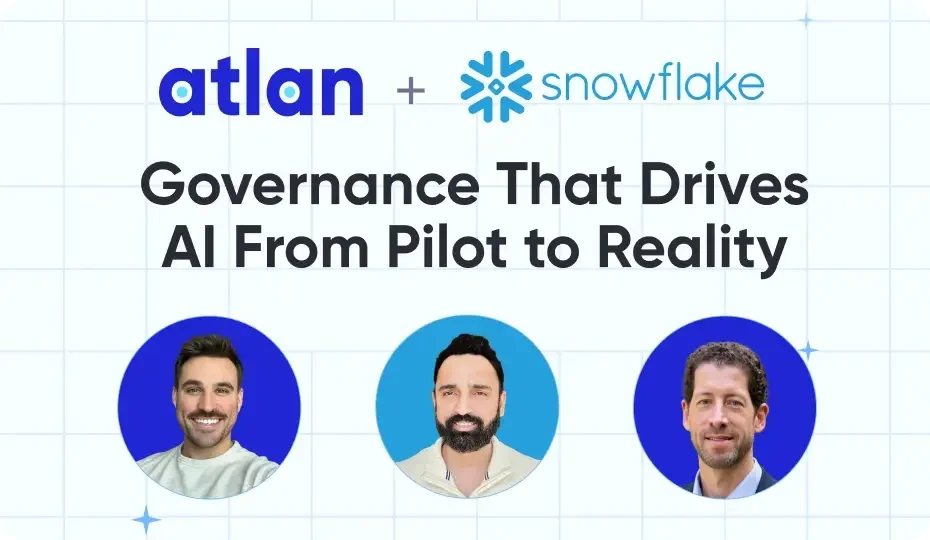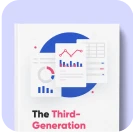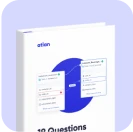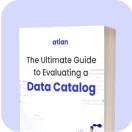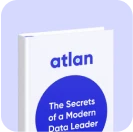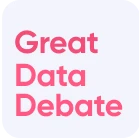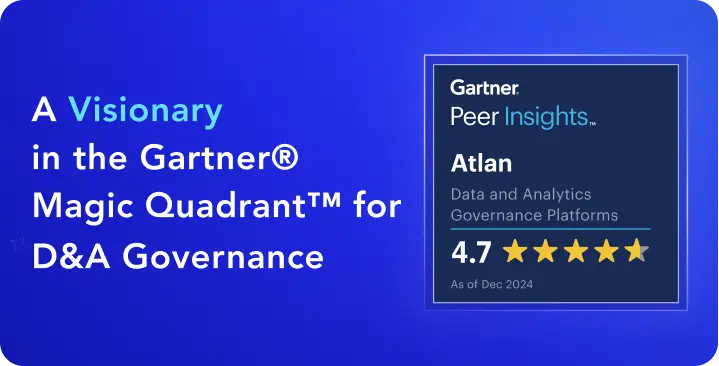Snowflake Horizon Catalog: Built-in Data Governance & Discovery for Snowflake Data Assets [2025 Guide]
Share this article
Snowflake Horizon Catalog is a built-in governance and discovery layer for the Snowflake AI Data Cloud, helping organizations manage data, apps, and models at scale. It helps data governors, stewards, data teams, security admins, and CISOs govern, protect, discover, and collaborate on all enterprise data across multi-cloud and hybrid environments.
Scaling AI on Snowflake? Here’s the playbook - Watch Now
This article will look into:
- Core capabilities of Snowflake Horizon
- Benefits and top use cases
- The role of a unified control plane in scaling governance
Table of contents #
- What is Snowflake Horizon?
- What are the benefits of Snowflake Horizon?
- How does Snowflake Horizon Catalog handle data governance?
- 1. Snowflake Horizon Catalog: Compliance
- 2. Snowflake Horizon Catalog: Security
- 3. Snowflake Horizon Catalog: Privacy
- 4. Snowflake Horizon Catalog: Discovery
- 5. Snowflake Horizon Catalog: Collaboration
- How does Atlan support the data governance capabilities offered by Snowflake Horizon?
- Bottom line
- Snowflake Horizon Catalog: Frequently asked questions (FAQs)
- Snowflake Horizon: Related reads
What is Snowflake Horizon? #
Snowflake Horizon Catalog is a data governance and discovery solution built into Snowflake AI Data Cloud. It provides a central interface to manage structured, semi-structured, and unstructured data, applications, and models across cloud environments for diverse data users.
“At the core of the Horizon Catalog is a unified, global repository for the Snowflake AI Data Cloud, which includes structured, semi-structured and unstructured data; models; Snowflake Notebooks; Streamlit; Snowflake Native Apps; and listings.” - Snowflake Blog from Jan 22, 2025
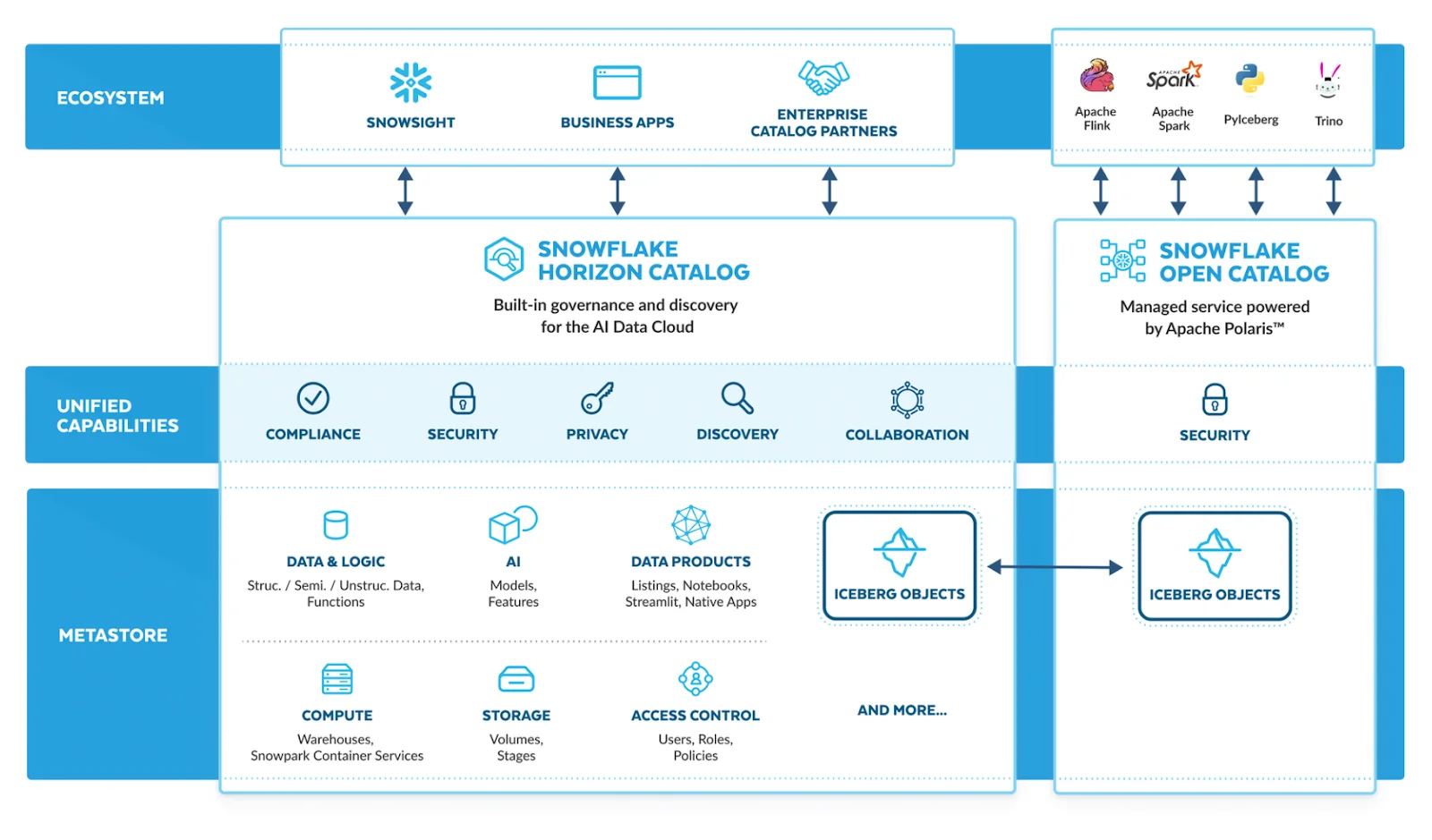
Snowflake Horizon Catalog - Source: Snowflake.
According to Snowflake, Horizon Catalog governs makes the following types of assets discoverable:
- Data, apps, and models in accounts across your entire organization
- Data from Apache Iceberg™ tables and external tables
- Data shared through private listings by trusted partners
- Publicly available data and every Snowflake Native App from the Snowflake Marketplace
- Data from third-party applications and data systems brought into Snowflake using connectors
What are the benefits of Snowflake Horizon? #
Snowflake Horizon helps organizations unify access controls, set up compliance workflows, and monitor data quality across clouds and regions.
With features like sensitive data tagging, object insights, AI-powered descriptions, secure data clean rooms, and more, Horizon makes it easier to protect sensitive information, find the right assets, and enable collaboration.
What are the top use cases of Snowflake Horizon Catalog? #
Snowflake Horizon Catalog supports a broad range of governance, discovery, and collaboration use cases, such as:
- Centralized security visibility across new and existing accounts: Data stewards can quickly evaluate the overall security posture of a Snowflake account, identify missing network policies, and more via the Trust Center user interface.
- Discovery of internal assets with rich context: Universal Search can power natural language searches of Snowflake data assets, while the Internal Marketplace can point to the right organizational listing and relevant data.
- Continuous data quality monitoring: Data stewards can track data quality using built-in and custom metric functions. This drives accountability across the Snowflake data estate.
- Governed collaboration with external partners or cross-functional teams: Horizon supports secure collaboration through features like Data Clean Rooms and private listings. It also enables a single, managed copy of data to be accessed with granular policies with external partners or cross-functional teams, ensuring that sensitive information stays protected while driving collaboration.
How does Snowflake Horizon Catalog handle data governance? #
Snowflake Horizon Catalog’s functionalities fall under five core capabilities:
- Compliance to protect and audit your data, apps, and models
- Security with continuous risk monitoring, RBAC, and granular authorization
- Privacy with aggregation, projection, and differential privacy, and data clean rooms
- Discovery to immediately search, discover, and access data, apps, and models
- Collaboration without having to move your data
Let’s explore the specifics further.
1. Snowflake Horizon Catalog: Compliance #
You can understand object dependencies, audit content usage, and safeguard and monitor your data with:
- Built-in object tagging or classification tags (system-defined and custom)
- Object Insights (in private preview) via a no-code interface to see how data is used, accessed, governed, and classified (including dependencies and sensitivity status)
- Data & Listing Access History and Schema Change Tracking for audits
- Built-in and custom data metric functions to monitor data quality
- Data lineage (in Snowsight) to track the table and column lineage from a source to a target table – get clear clear visibility into data relationships and flows
![]()
Lineage tracking in Snowflake Horizon Catalog - Source: Snowflake.
2. Snowflake Horizon Catalog: Security #
The goal of security offerings in Snowflake Horizon Catalog is to help you safeguard your data and continuously monitor for risks with:
- Trust Center that streamlines security and compliance monitoring across clouds based on industry best practices
- Built-in encryption (end-to-end and applicable to data at rest and in transit), authentication (OAuth or federated), network policies, unified RBAC and Listing Discovery Controls
- Granular data access policies (for databases, schemas, tables, etc.) that offer column and row-level protections
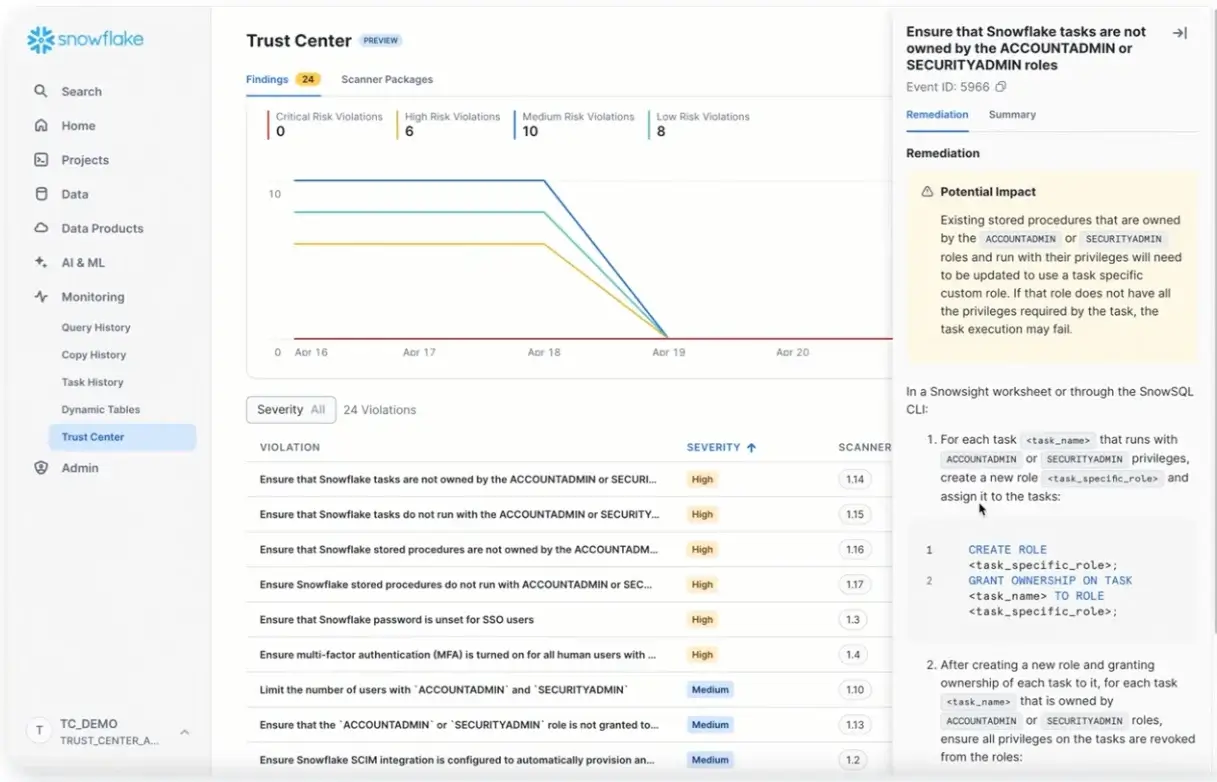
Snowflake Horizon Catalog Trust Center - Source: Snowflake.
3. Snowflake Horizon Catalog: Privacy #
Snowflake Horizon’s advanced privacy policies and data clean rooms can help manage and protect sensitive data while allowing data teams to harness its potential. Essential privacy features include:
- Aggregation and projection policies to control the type of queries to be run against shared data
- Differential privacy to protect against sophisticated privacy attacks on your data
- Synthetic data generation (realistic data copies of sensitive data), without exposing the original data, to let more users analyze sensitive data for insights
- Collaborating on sensitive data with multiple teams inside and outside your organization with Snowflake Data Clean Rooms (DCRs)
“Data Clean Rooms (DCRs) are secure environments that enable multiple organizations (or divisions of an organization) to bring data together for joint analysis under the governed and defined guidelines and restrictions that keep the data secure.” - Senior Partner Sales Engineer Ravi Kumar on Snowflake’s Data Clean Rooms (DCRs)
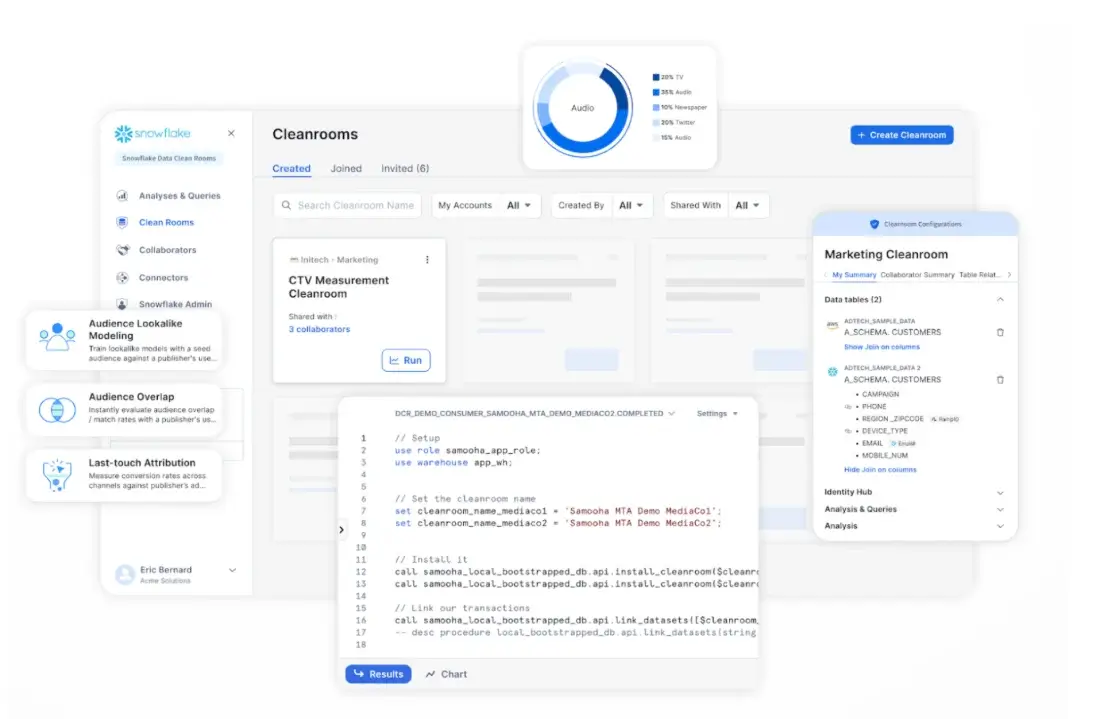
Privacy features in Snowflake Horizon Catalog - Source: Snowflake.
4. Snowflake Horizon Catalog: Discovery #
With Snowflake Horizon Catalog, you can discover and access data, apps and models from inside and outside your organization. Essential discovery features include:
- Universal Search to find data, apps, and models using natural language queries
- An Internal Marketplace to discover organizational listings (i.e., internally available data products)
- Snowflake Marketplace to browse for publicly available data (from customers and partners, for instance)
- Object Insights interface (in Snowsight and in private preview) offering relevant insights about the popularity, access, quality and dependencies of content
- AI-powered Object Description to automatically add relevant context and comments to tables and views, so that others to more easily curate and discover content
“[Better understand your content with] AI-powered Object Descriptions, which uses AI to allow customers to automatically generate relevant descriptions and comments to tables and views. [Meanwhile,] the Object Insights Interface provides more context by surfacing relevant insights about the popularity, access, quality and dependencies of these objects.” - Snowflake blog from June 5, 2024
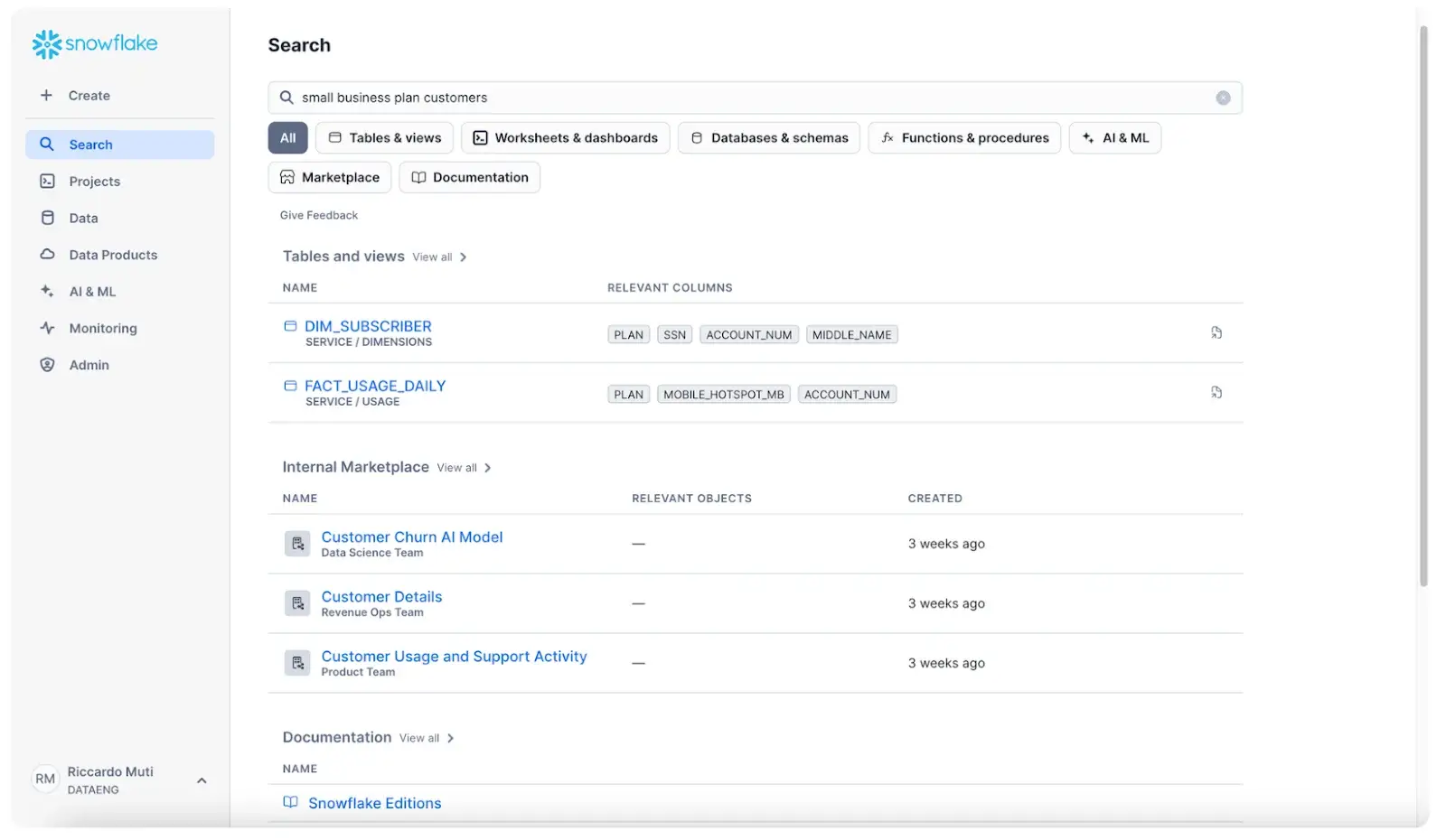
Natural language search in Snowflake Horizon Catalog - Source: Snowflake blog.
5. Snowflake Horizon Catalog: Collaboration #
Horizon Catalog empowers you to collaborate securely without moving your data. You can share a single managed copy of data across cloud regions without the need for ETL processes or duplications.
You can also streamline transactions by buying and selling data, applications, and AI products with features like self-service trials, unified billing, and the option to use committed Snowflake spend for payments.
Other essential collaboration features include:
- The Internal Marketplace to share data within your organization
- Private listings to share data directly with specific business partners
- Snowflake Marketplace to buy and sell data products
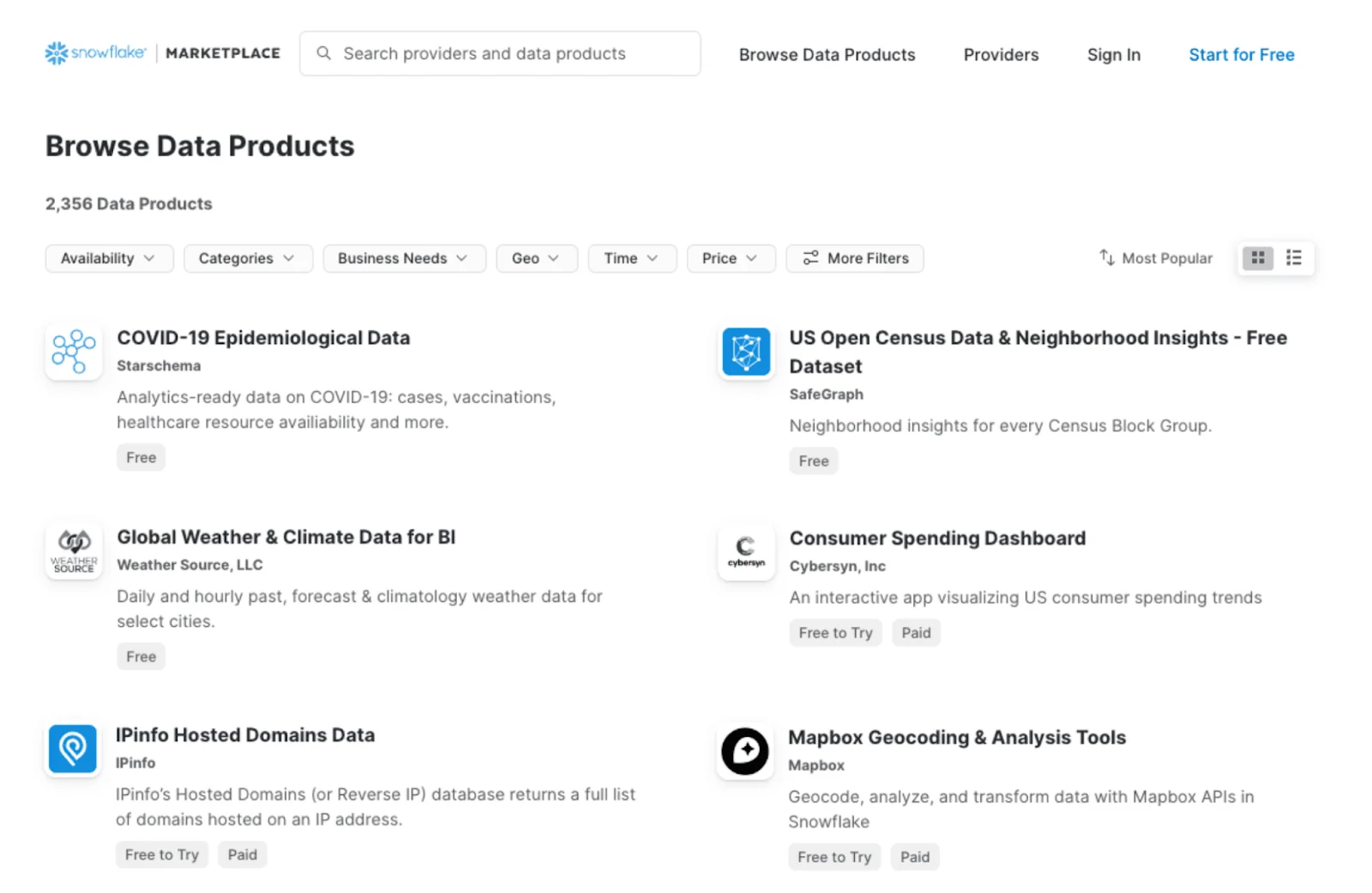
Collaboration in Snowflake Horizon Catalog - Source: Snowflake.
How does Atlan support the data governance capabilities offered by Snowflake Horizon? #
As part of the Snowflake Horizon Partner Ecosystem, Atlan–a unified control plane for data and metadata–supports and extends these capabilities with a pre-built integration to the Snowflake AI Data Cloud. For instance, Atlan uses the Snowflake metadata to provide better context about your data assets.
Think of Atlan as the active-metadata backbone that amplifies and extends Snowflake Horizon’s built-in governance capabilities by:
- Establishing a unified home for all data, metadata, and AI by ingesting all Horizon-governed objects (tables, Iceberg/Polaris assets, Data Products, apps and models) into one searchable catalog, alongside non-Snowflake sources
- Enriching all data assets with business glossary terms, semantic models and relationship metadata so users can instantly find and understand governed assets
- Building a single home for compliance with bi-directional sync of Snowflake Object Tags between Atlan and Snowflake — if you tag assets on Atlan, their status on Snowflake gets automatically updated
- Driving data adoption with Atlan’s Chrome extension that sits on top of tools like Snowflake, Power BI, Looker, etc. — get all the context you need in one place
- Maximizing your Snowflake investment by surfacing Account Usage and Information Schema views in Atlan — understand asset usage, queries, etc.
- Accelerating root cause and impact analysis with column-level, automated, and actionable data lineage
- Leveraging AI-assisted classification to tag sensitive data (PII, PCI, IP) and consent attributes, then pushing those tags into Horizon’s attribute-based access controls
- Providing data-steward-driven workflows to review, certify and document Horizon policies, shares and sensitive assets—all with comments, approvals and SLA tags
“Atlan’s open API based approach, pay-as-you-go model, and delightful user experience align well with Snowflake’s own ethos, and what customers are demanding from their tools.” - Tarik Dwiek, Head of Global Technology Partnerships at Snowflake
Read more → Snowflake data governance with Atlan
Bottom line #
Snowflake Horizon Catalog simplifies governance, security, privacy, discovery, and collaboration in the Snowflake AI Data Cloud. With features like object tagging, lineage tracking, advanced privacy policies, and AI-powered search, it enables secure and efficient management of data, apps, and models.
Atlan enhances Horizon’s capabilities by offering additional context, automated lineage, and integration with Snowflake metadata, creating a unified and efficient governance framework. Together, Snowflake Horizon and Atlan empower organizations to maximize data value while maintaining strong compliance and control.
Snowflake Horizon Catalog: Frequently asked questions (FAQs) #
1. What’s the difference between Snowflake Horizon and Polaris? #
Snowflake Horizon is a governance and discovery layer built into Snowflake to manage data, apps, and models.
Polaris, on the other hand, is an open-source catalog implementation for Apache Iceberg. Snowflake Open Catalog (powered by Polaris) works alongside Horizon to extend Horizon’s capabilities to Iceberg tables and external data engines.
2. What is Snowsight in Snowflake? #
Snowsight is Snowflake’s modern user interface for querying, visualizing, and managing data. It also provides access to Horizon Catalog features like lineage views, object insights, and data quality metrics through an intuitive, point-and-click experience.
3. Does Horizon Catalog support open table formats like Apache Iceberg? #
Yes. Horizon integrates with Apache Polaris and Snowflake Open Catalog to extend governance and discovery capabilities to Iceberg tables, even those created outside of Snowflake. This allows organizations to apply a consistent policy model across Snowflake-native and open-source data ecosystems.
4. What kind of users benefit from using Horizon Catalog? #
Horizon is designed for multiple roles—data stewards, governance leads, security teams, CISOs, and analysts. It simplifies oversight for compliance teams, improves discoverability for analysts, and streamlines secure collaboration for business and technical users alike.
5. Can I use Snowflake Cortex AI inside Horizon Catalog? #
Yes. Horizon uses Snowflake Cortex AI to power features like AI-generated object descriptions and natural language search. This helps users quickly understand data assets and find what they need without relying on technical metadata alone.
6. Is Snowflake Horizon Catalog available across all cloud platforms? #
Yes. Horizon Catalog works across AWS, Azure, GCP, and sovereign cloud environments. It provides a unified governance and discovery experience for organizations operating in multi-cloud and hybrid environments.
7. Is Snowflake Horizon free? #
Snowflake Horizon Catalog is included with the Snowflake platform, but some advanced features (like Object Insights, Data Clean Rooms, or integrations with Snowflake Cortex AI) may be tied to specific editions or pricing tiers.
You can contact Snowflake sales or check their documentation for detailed feature availability and pricing.
Snowflake Horizon: Related reads #
- Snowflake Cortex: Top Capabilities & Use Cases to Know in 2025
- Snowflake Copilot: Everything We Know About This AI-Powered Assistant
- Apache Iceberg in Snowflake: A Complete Guide for 2025
- Snowflake Polaris: Everything We Know About This Open-Source Technical Catalog
- Snowflake Data Governance — Features & Frameworks
- Snowflake Data Cloud Summit 2024: Get Ready and Fit for AI
- How to Set Up Data Governance for Snowflake: A Step-by-Step Guide
- Snowflake Data Lineage: A Step-by-Step How to Guide
- How to Set Up a Data Catalog for Snowflake: A Step-by-Step Guide
- Snowflake Data Catalog: What, Why & How to Evaluate
- Snowflake Data Mesh: Step-by-Step Setup Guide
- Glossary for Snowflake: Shared Understanding Across Teams
- Personalized Data Discovery for Snowflake Data Assets
- Snowflake Data Dictionary
Share this article

